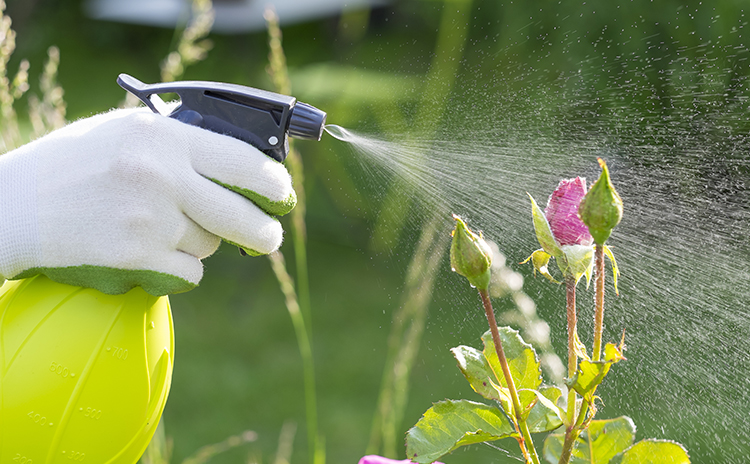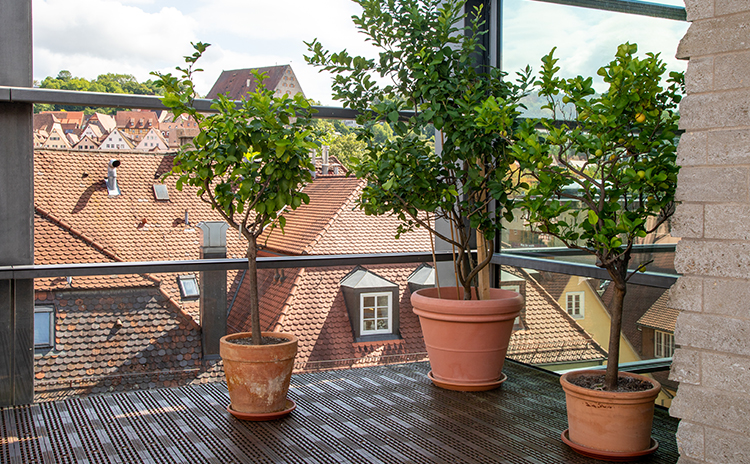Summer is, without a doubt, one of the finest seasons on the planet. Individuals who live in cities and have balconies are subjected to direct sunshine in the summer. Many of us associate summer with hot days at the beach or in the garden, sprinklers on the newly mown grass, cricket on the radio or television, and lounge rooms strewn with wrapping paper and presents.
Plants benefit from the long hours of sunlight and the return to warmer temperatures (and people). However, issues like exposure to direct sunlight or lack thereof, reflecting surfaces, wind, and light can make growing pots on your deck, patio, or balcony difficult for urban apartments and limited space growers.
Today’s post will discuss some excellent strategies to assist you in overcoming some typical balcony gardening challenges and having a healthy and thriving balcony garden! With these eight balcony garden suggestions, you can easily survive the summer heat and cultivate plants:
1) Plants that are suitable for your location should be grown:
It’s tempting to buy all the plants that catch your eye at the nursery without first determining whether they’re suited to the environment in which you’re asking them to thrive – sun-loving plants that can withstand the long sunny hours and heat, shade-loving plants for balconies and gardens that don’t get enough sunlight. Light patterns are all about understanding microclimates in our garden and selecting the correct plant to grow in the right area. We must emulate these circumstances to get the most out of our balcony garden investment. The plant label, seed packet, or your study will tell you what your plant needs — tags will mention things like sun, part shade, and shade.
2) Water The Plants:
In hot summer, water your container plants deeply. Water in the early morning; you must never water your plants in direct and intense sunlight after the morning because it could result in burns and increase the humidity of plants. Water some moisture-loving plants twice a day, but avoid waterlogged soil. Watering is essential in the summer since plants lose water fast from the soil and foliage. Make a watering schedule and ensure that you water your plants once every two days. Only water the plants in the morning or evening. Watering them in direct sunlight will cause the plant to burn.

3) Protect Urban Plants From Summer Afternoon Sun:
Shadecloth may be obtained from a hardware store. If aesthetics are not an issue, a sheet, towel, or umbrella fastened to the railing and stakes in the pots will provide relief from heatwaves and searing temperatures.
Allow them some early sun and shade the pots throughout the warmest parts of the day. As needed, use sturdy clips, ropes, and elastic.
4) Pests in Summer Gardening:
It is critical to inspect your balcony garden for signs of pests. In many circumstances, plucking the bugs off the plants is the most efficient technique for managing insects in container gardens, although an organic pest control treatment may be required occasionally. The pest problem is a typical problem with all the balcony garden plants. You can treat them using a neem oil solution or insecticidal soap as well.

5) Container Plant Fertilization:
As plants grow and mature, soil nutrients are depleted. Containers may also lose nutrients more quickly since they are rinsed out of the pot when we water. As a result, it’s critical to fertilize your container gardens to recover the nutrients that have been lost. To give your container gardens a good start, apply a pelletized fertilizer before planting them. Then, during the growth season, make sure to hydrate your containers with a liquid fertilizer every week.
6) Look for a Good Container:
Plastic and dark-colored pots are out of the question in the summer because they absorb more heat and raise the temperature of the plant soil. Ceramic and terracotta pots, especially burned ones, are wonderful alternatives since they enable the plant to breathe. Thick and glazed concrete pots keep plant roots cold for an extended period. Avoid using unfired terracotta pots since the water dries up faster in them. In the event of high heat, line the pot with a waterproof, insulating material-like form to protect your fragile plants. Alternatively, a moist towel can be wrapped around the terracotta or ceramic pots.

7) Mulching:
The soil loses moisture quickly due to high heat and temperature. Thus a thick layer of mulch can help avoid this. Organic mulches such as shredded bark, leaves, straw, grass clippings, aged compost, and hay can be used. It will keep the soil temperature a little lower and help keep water from evaporating.
8) When Feasible, Use Automated Watering:
Installing automated watering systems for your balcony garden is one of the simplest methods to make caring for your plants easier. Maintaining plants can be challenging for those of us with busy schedules, so this is a great way to make it a bit less labor demanding! A basic drip system is simple to install and will turn on a pump to drip water into all of your containers regularly.


Don’t you love to live on the top floor of an apartment to enjoy the scenic view of the city and less noise? It’s a wonderful experience! However, when the summer season arrives, your ap...

Many of you, if you were planning to buy a home, could have come across the term RERA. But what is it all about? The Real Estate Regulatory Authority (RERA) was set up to make home-buying sa...
Comments